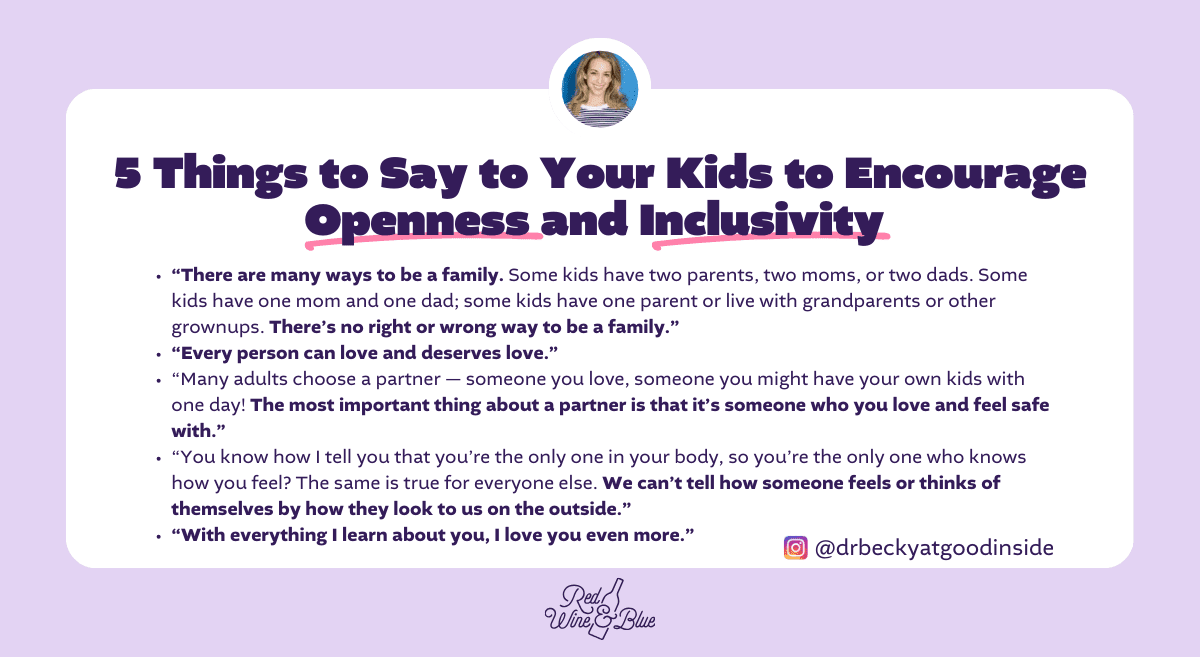We’ve spent some time learning about why we celebrate Pride, so now let’s kick off that celebration! Here at Red Wine & Blue, our work is centered around relational organizing – talking to friends and family about the issues we care about – so that’s our Easy A for this week: talk to your friends and family about Pride Month!
The simple act of talking to the people who love and trust us about celebrating and advocating for the LGBTQ+ community can do a world of good. Our kids learn by example, and we can model for them the behavior we want to see in our community. And let’s be honest, sometimes the other adults in our lives need that too. By openly communicating about Pride Month, we create an affirming, safe, and supportive space for all.
Tips for talking to kids about Pride Month:
- Speak at an age-appropriate level that is comfortable for you and your family.
- Be the one to start the conversation. If you find it hard to start a conversation out of the blue, you can lead into it by:
- reading a story with LGBTQ+ characters.
- watching an inclusive movie or educational documentary.
- going to a local Pride Month event.
- doing rainbow or Pride themed arts and crafts together.
- Create a casual, judgment-free zone.
- Share that it’s about celebrating and including everyone.
- Use inclusive, gender-neutral language and model using chosen pronouns.
- Keep it simple, general, and relatable. Use terms they understand.
- Ask open-ended questions and let them ask questions too.
- Be honest about what you know and don’t know.
- Be positive and affirming.
- Let them know the conversation can continue anytime they’d like.
- Remember that this conversation may also be affirming to them!

Tips for talking to friends about Pride Month:
- Talk to friends who you believe will be open to a meaningful conversation.
- Find common ground. Even if they won’t agree with you on everything, focus on your shared values to get the conversation started. For example, saying, “We can agree that all people should be treated with respect and dignity, right?”
- Share your beliefs and what you’ve learned about Pride Month.
- Ask open-ended questions to learn what they are thinking and feeling too.
- If they share disinformation, don’t repeat it, but don’t ignore it. Counter it with facts and how those facts inform your beliefs.
- If you can’t avoid disagreements, you can always pivot the conversation back to your shared values.
There are ten days left in Pride Month. That’s plenty of time for good conversations and celebrations. Happy Pride!

